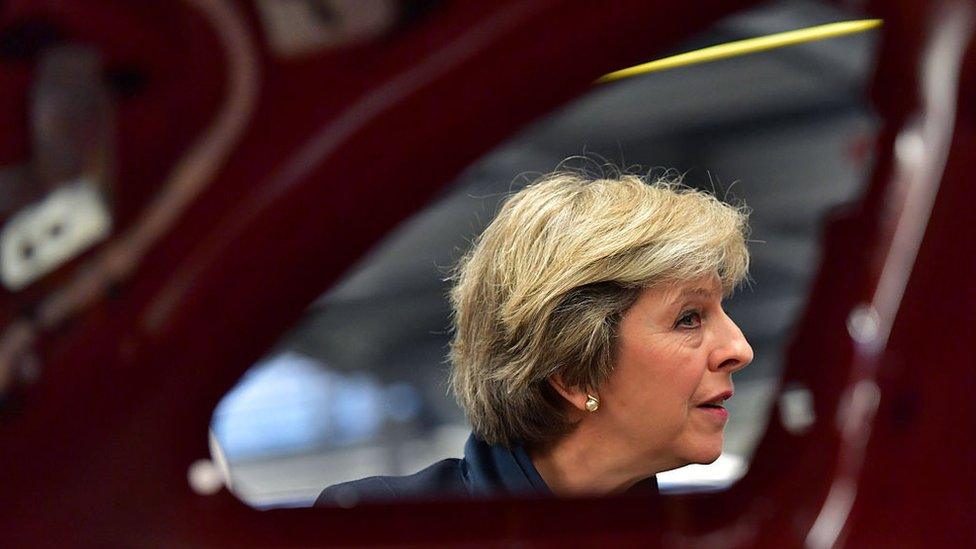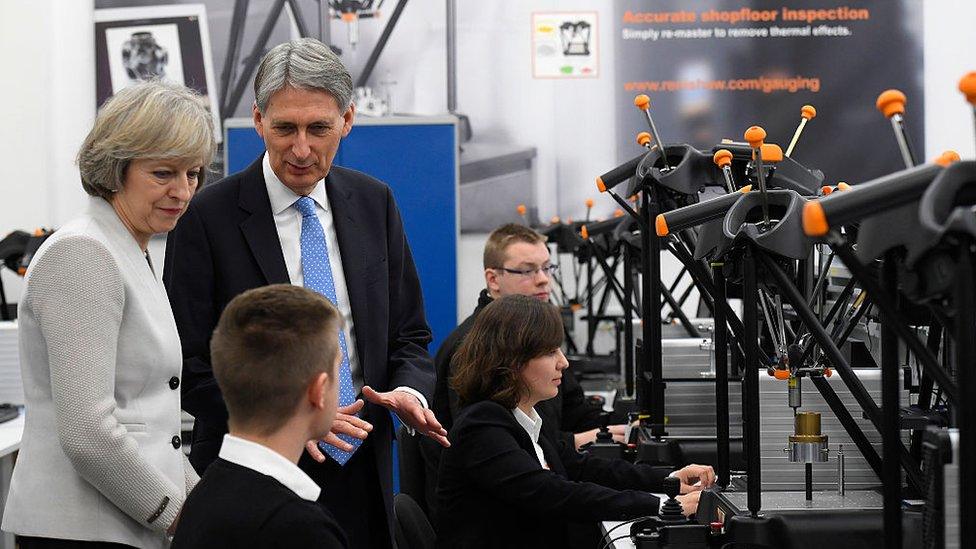Industrial strategy: A helping hand, not taking the wheel
- Published
- comments

The mystery of what was said to Nissan to get it to commit to further investment in Sunderland may be unravelled today.
As part of the government's Green Paper on industrial strategy, it's expected that electric vehicles and battery technology will be identified as prime candidates for additional government investment. By way of coincidence, that is precisely what Nissan wants to build on, after investing £26m in battery technology a year ago today.
Nissan, it seems, is the perfect example of how to get government support by getting regional, sector and skills needs closely aligned. That's the way to do it under the government's new industrial strategy.
The words "industrial strategy" send a chill through those industry veterans old enough to have been working in the 1970s. Millions were poured into firms like British Leyland and British Steel - all to no avail.
The government's record at picking winners or identifying "national champions" is pretty poor. Under Thatcher, the government tried to get out of the way. Regulation was reduced and unions were diminished in the hope that animal spirits of business ambition would lead to growth and prosperity.
It did - for some. Financial services, for example, underwent a revolution while primary industries like steel and coal declined.

The new strategy includes investing in technical education and training
If we have learnt anything about "Mayism" it's that she doesn't think the benefits of business success will percolate through the country without a bit of a push from government.
Her business minister, Greg Clark, is also no believer in total freedom of the market. Today's industrial strategy is an attempt to lend a helping hand without having both on the steering wheel. The best way to do that, thinks the government, is to provide something that just about everyone agrees is needed and provide it in a location-appropriate way to sectors where we are already pretty successful.
A lack of skills is a perennial gripe of British business. Added to possible future restrictions on hiring from the EU and many businesses worry where they will get the right staff from.

Mrs Thatcher didn't believe in steering industry
Today's Green Paper attempts to address those concerns with a promise of £170m to beef up technical education by funding new colleges and replacing a plethora of courses - seen by business as low quality - with fewer higher quality courses designed to fit the needs of employers in the surrounding area. This emphasis on localism with skills and infrastructure spending, attempts to recognise that what's right for Birmingham is not right for Cornwall.
Business has a number of other concerns, primarily of course what our relationship with our biggest trading partner, the EU, will eventually look like. Given the political imperative to reduce immigration from the EU, it seems sensible to conclude that it will be harder to hire people from outside the UK. Home grown skills are both desirable and may be increasingly urgent.
However, there are other big questions for the PM and her business secretary to answer. For example: is it a good thing or a bad thing to see our very best businesses (e.g. ARM Holdings, Skyscanner) sold off at bargain rates to foreign firms?
At the moment, the biggest backers of British business winners are rarely British. Is "open for business" good for business?